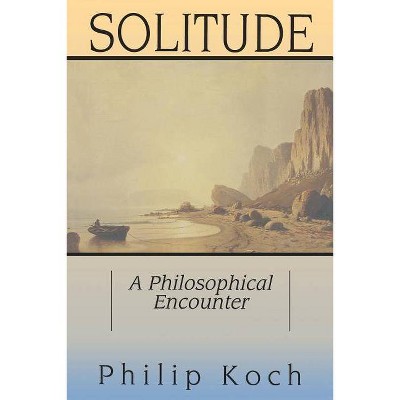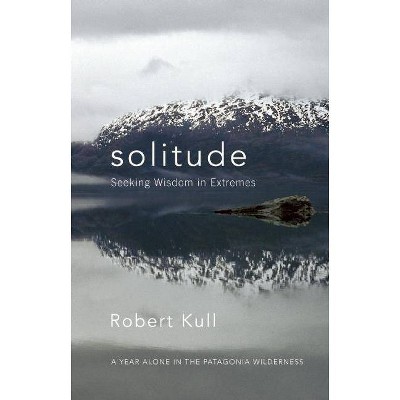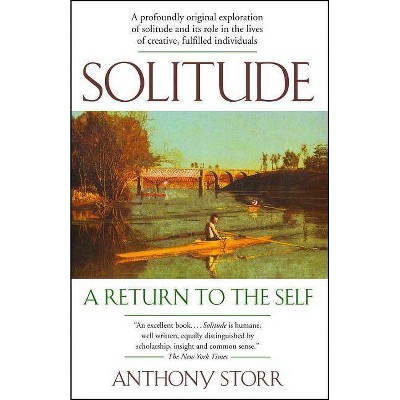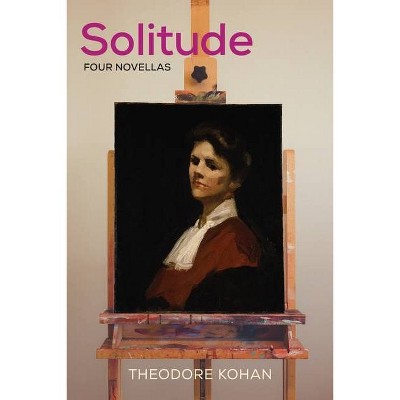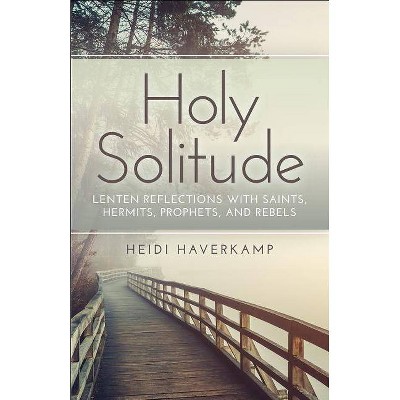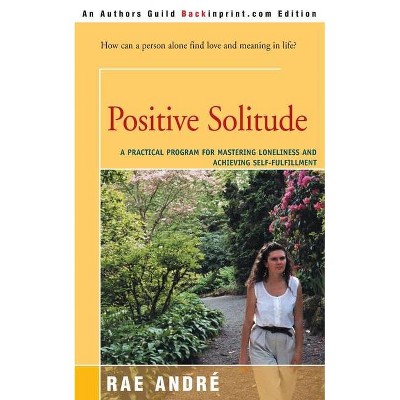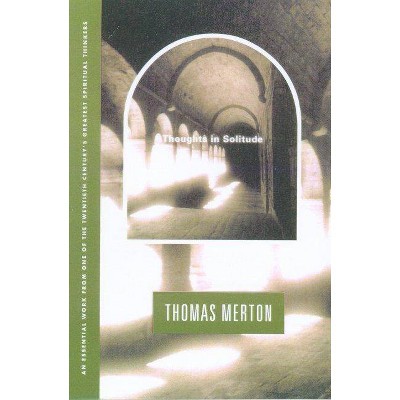Absolute Solitude - by Dulce Maria Loynaz (Paperback)
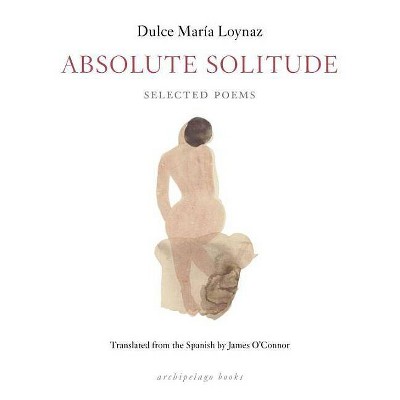
Similar Products
Products of same category from the store
AllProduct info
<p/><br></br><p><b> About the Book </b></p></br></br>"First published as Poemas Sin Nombre by Ediciones Hermano Loynaz, Cuba, 1953, and, Melancolaia de otoano, Ediciones Hermano Loynaz, Cuba, 1997.<p/><br></br><p><b> Book Synopsis </b></p></br></br>In the first comprehensive selection and translation of Dulce María Loynaz's poetry, James O'Connor invites us to hear the haunting voice of Cuba's celebrated poet, whom the Nobel Laureate Juan Ramón Jiménez terms in his Foreword, archaic and new...tender, weightless, rich in abandon. Widely published in Spain during the 1950s, Loynaz's poetry was almost forgotten in Cuba after the Revolution. International recognition came to her late: at the age of ninety she was living in seclusion in Havana when the Royal Spanish Academy awarded her the 1992 Cervantes Prize, the highest literary accolade in the Spanish language. The first English publication of her work, <i>Absolute Solitude </i>contains a selection of poems from each of Loynaz's books, including the acclaimed prose poems from <i>Poems with No Names</i>, a selection of posthumously published work.<p/><br></br><p><b> Review Quotes </b></p></br></br><br>We tend to assume that political poetry announces its commitment to the here and now. Loynaz leaves us at sea, favoring an elemental vocabulary of rains, winds, rivers, waves, wings, and stars. Her poems ... ride a recursive current. They inspire doubt in the power of forward movement to manifest a new reality. <i><b>-- New Yorker</b></i> <p/>Characterized by a restless fusion of European and Afro-Caribbean influences, Loynaz's poems evoke the problematic dynamic of self, identity, and a deliberate dissolution...James O'Connor's English translation, presented <i>en face, </i>is not doggedly literal but instead supports the transformational elements of Loynaz's work. His approach reinforces the remarkable fluidity of her phrasings, which have a refractive nature, giving rise to multiple potential translations, each with subtle metaphysical shadings...The result is satisfying and triggers self-reflection. <b>-- Susan Smith Nash, University of Oklahoma, <i>World Literature Today</i></b> <p/>Loynaz's poetry has a Keatsian elegance and burn to it. She writes in a high romantic register that trades heavily in well-worn poetic subjects: souls, flames, darkness, roads, skies, beauty, etc., which is to say that her work is always clear and serious and does not waste time on trivial states of being. <i><b>-- Harvard Review</b></i> <p/>[<i>Absolute Solitude</i>] showcase[s] the poet's precision and transparency, holding true to her conviction that poetry represents no end point, but rather a journey, a movement... O'Connor beautifully brings the collection into English, rendering Loynaz's intimacy delicate and strong, her poetic subject bold and emotionally bare. <i><b>-- Kenyon Review</b></i> <p/>Poems Without Names are pure condensations of poetry, the pure bone of the affair: it is interior poetry, which is rare in women. <b>--Gabriela Mistral</b> <p/>The poems are intensely personal, and yet encompass universal themes: the agonies of love, the pleasures and terrors of solitude, wrestling with the divine. I was reminded, at different times, of Rumi, Emily Dickinson, Leonard Cohen, and Gabriela Mistral; while I often find contemporary prose poems difficult--too obscure, I suppose--these I found to be transporting. <b>--<i>Rosemary & Reading Glasses</i> (blog)</b> <p/>These poems have fought off age, indifference, political scrutiny and sanction, they have fought off time to remain fresh and full of playful magic. Dulce Maria Loynaz has all the solitude she could ever use now - I'm sure she won't mind that some of us are just discovering this charming Cuban poet. <b>-- Michael Dennis, <i>Today's Book of Poetry </i></b>(blog) <p/>...Reality glows from this incredibly human poetry; fresh letters, tender, weightless, rich with abandonment; feeling and mystical irony in its lined notebook paper like roses wrapped in the ordinary. <b>--Juan Ramón Jiménez</b> <p/>A cosmos of paradoxes, of encounters and failed encounters, of reality made into literature and literature seeped into reality.<b> -Esperanza Lara Velázquez<br></b><br>Dulce María Loynaz believes in the utility of her work and assumes the commitment of bestowing upon Cuban poets the important role that corresponds to them in the foundations of Modernism... <b>-Paco Tovar</b> <p/>...That equilibrium between fortitude and tenderness -- the strong and the sensible -- never denies its feminine cast; just like it was never hidden in the life of Dulce María Loynaz. <b>- César López</b><br><p/><br></br><p><b> About the Author </b></p></br></br><p>Dulce María Loynaz (1902-1997), the grande dame of Cuban letters, received international recognition in 1992 for her nearly century-long contributions to Spanish letters when she was awarded the Cervantes Prize, widely recognized at the highest prize in Spanish literature. Often called the Emily Dickinson of Cuba, her poems are celebrated for their precision and modern lyricism. Though born to a patriotic family - her father, General Enrique Loynaz del Castillo, was a national figure, having fought under Antonio Maceo in Cuba's war for independence - she stopped publishing for several decades following the 1959 Cuban Revolution, as her deeply personal style and themes were incongruous with the period's ideological control over the arts. She died in Havana City, the same city in which she was born, in 1997.</p> <p/><b>About the Translator: </b><br>James O'Connor is a poet, playwright, and translator from New York City. He has lived in France, Mexico, and from 1999 to 2000 he lived in Havana, Cuba. In 2006 he was awarded a playwriting fellowship from the Edward F. Albee Foundation.
Price History
Price Archive shows prices from various stores, lets you see history and find the cheapest. There is no actual sale on the website. For all support, inquiry and suggestion messagescommunication@pricearchive.us
